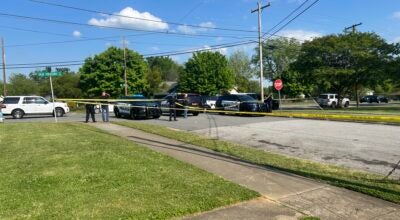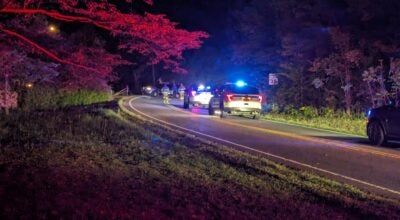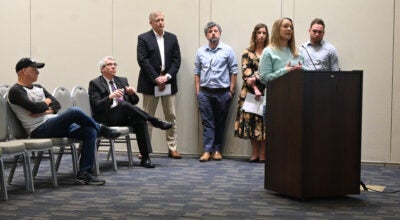Kentucky governor joins in support of Rowan County prayer lawsuit
Published 12:10 am Monday, November 20, 2017
The number of states in support of Rowan County’s religious liberties case continues to grow.
On Thursday, Nov. 16, Gov. Matt Bevin of Kentucky joined with 21 other states to file an amicus brief in support of a case recently appealed case to the Supreme Court: Rowan County v. Lund.
States represented on the brief, also known as a “Friend of the Court” brief, include Alabama, Arizona, Arkansas, Colorado, Georgia, Indiana, Kansas, Louisiana, Michigan, Missouri, Montana, Nebraska, Nevada, Ohio, Oklahoma, South Carolina, South Dakota, Texas, Utah, West Virginia and Wisconsin.
Petitioners wrote in defense of prayer practices before county commissioner meetings, which have been under fire since 2013.
Local prayer practices were at first ruled unconstitutional by a U.S. District Court judge in May of 2015. The practices were briefly found OK at the circuit court level in September of 2016, only for a July 2017 en banc Fourth Circuit review to overturn this decision.
The brief cites similar cases Marsh v. Chambers and Town of Greece v. Galloway as examples of how this ruling is contradictory. In both cases, the Supreme Court found legislative prayer constitutional, as the act was time-honored part of national tradition.
“The court … based its decision in large part on the erroneous premise that a widespread tradition of lawmaker-led legislative prayer … was necessary for the practice to survive constitutional scrutiny, then deemed that historical record lacking,” the brief said. “(T)he lower court turned a blind eye to the fact that legislator-led prayer is itself an established part of our national tradition … .”
The Rowan County case differs from the Marsh and Town of Greece cases as it focuses on lawmaker-led prayer, rather than prayers led by a hired chaplain.
Yet, those behind the brief said the Fourth Circuit Court decision unfairly discounts local tradition by comparing it to more common methods of prayer in legislative sessions and public proceedings.
“Lawmaker-led prayer is a common and important form of legislative prayer, which ‘connect[s] [lawmakers] to a tradition dating to the time of the Framers’ and allows part-time and volunteer lawmakers to ‘reflect the values they hold as private citizens,'” said the brief. “This Court’s review is necessary to undo the Fourth Circuit’s erroneous decision, which would ‘sweep away what has so long been settled’ and threaten to ‘create a new controversy’ … .”





